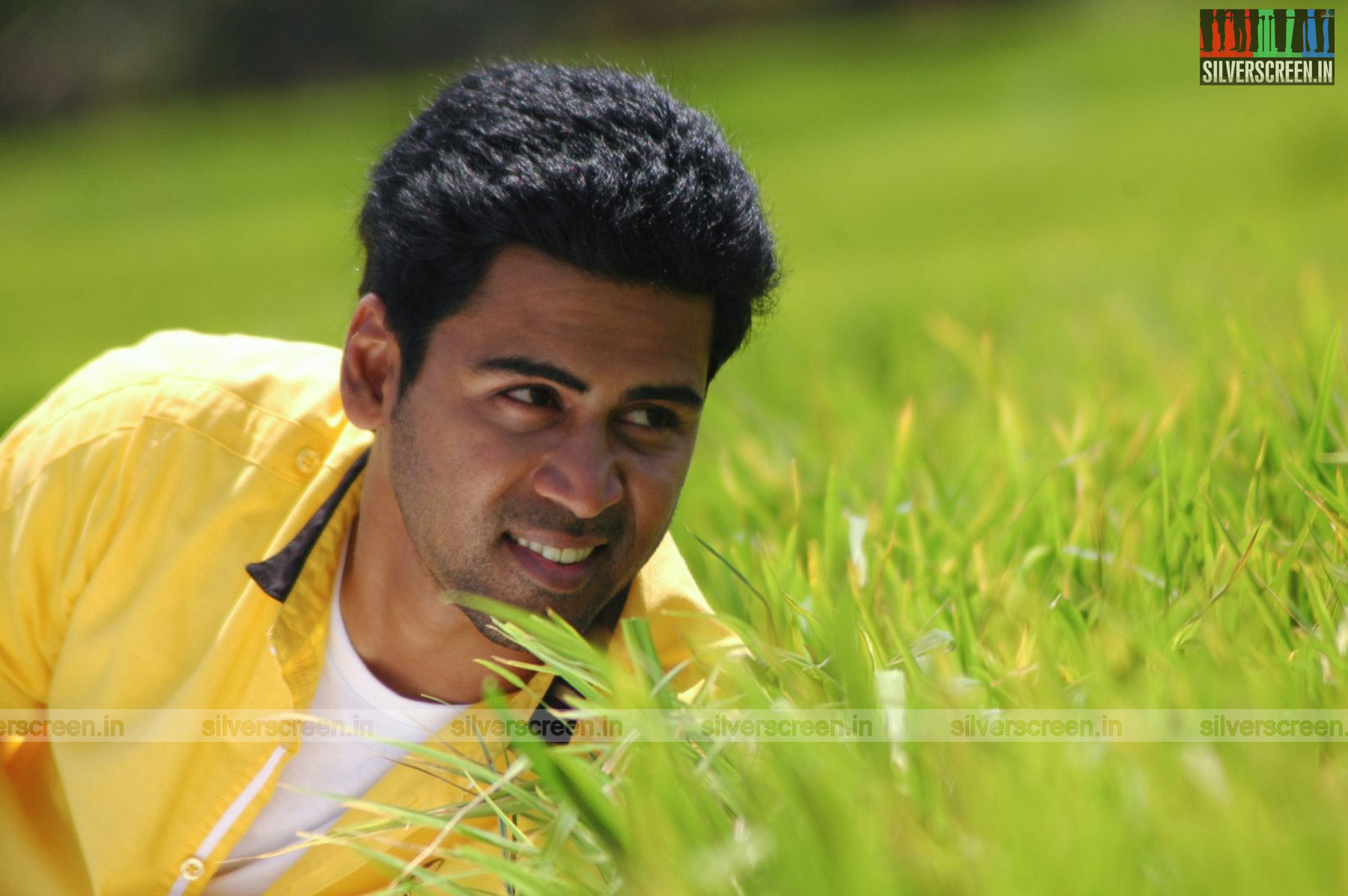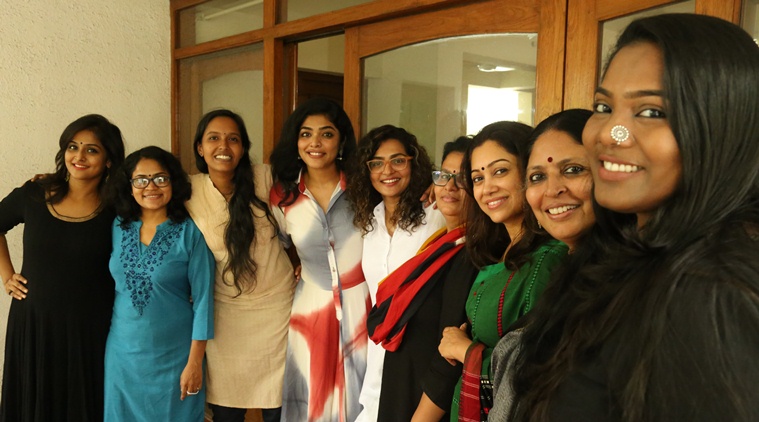Director: Anjali Menon
Cast: Prithviraj, Nazriya Nazim, Parvathy, Renjith
Music: Raghu Dixit and M Jayachandran
Koode is filled with mist, lovely lights and colours. It has photogenic actors, and is shot in one of the most picturesque places in the country, the Nilgiris. Even when the characters have a bad day, the camera finds something pretty to get distracted to. Like a stylised shot of mist forming a picture on a window or an image of sun rays gleaming through trees. The film, an adaptation of Marathi comedy-drama Happy Journey, keeps urging you to look past your sorrows and anxieties, and see the airy side of life.
Koode revolves around Joshua (Prithviraj), the eldest child of Aloshi (Renjith), a lowly automobile mechanic, and Lilly (Mala Parvathy) who live in a quaint town in the Nilgiris. When we see him first, he is toiling in a West Asian work site, scooping up tar. He gets a call from his father, informing him of a death in the family. You can’t really say if the news moves him; gloom is an intrinsic part of Joshua’s face. He goes home to attend the funeral, and Koode shifts from the brownish landscape of West Asia to the cool rainy green of the Western Ghats.
Director Anjali Menon has a flair for narrating intricate stories about families. In Manjadikkuru, still her masterpiece, she narrated a poignant coming-of-age tale in the background of a joint family’s disintegration. In Ustad Hotel, which earned her a National Award for best dialogue, a cosmopolitan youngster and his small-town grandfather bond over food and goodness. In Bangalore Days, an unapologetic potboiler, Menon pulled off a casting coup, bringing in three young leading stars to play cousins celebrating and discovering love and life in a new city.
What keeps these films radically apart from the Bollywood family dramas of the 90s is that Menon is unafraid of showing the unpleasant side of familial relations. She calls out the egoistic and selfish parents (Ustad Hotel, Bangalore Days), and pans her camera to the children who face sexual abuse inside homes (Manjadikkuru).
Koode is about the suppressed anger of a man who was forced to leave his home at 15 and sacrifice everything good in life for the sake of his family. At that tender age, Joshua’s modest life revolved around football, friends, a sweetheart and a baby sister. To save his family from a grinding financial crisis, his maternal uncle offers to take him to the oil fields of the Gulf region, a preferred job territory for a large section of the Malayali community. He returns a soulless man, burdened with the feeling of being unloved and powerless, too weak to even confront his parents.
The film shifts gear with the arrival of Jenny (Nazriya Nazim), Joshua’s sister, who barges into his moodiness like a Santa Claus. Given the way she behaves, Jenny could well be a nightmare for an introvert. She talks a lot about food, believes in spreading joy, and is determined to turn her brother’s dull life into a Diwali of sorts. As a first step towards it, she introduces him to the magical world of consumerism, and imparts life-lessons to him with the enthusiasm of an insurance agent.
Jenny might come across as a terribly one-note character. It is as though Menon made little effort to extend it beyond Nazriya Nazim’s well known on-screen persona. Nazriya’s playing-to-the-gallery performance as Jenny borders on Kollywood’s famous loosu ponnu caricature, but Menon’s masterful staging of her scenes does a good job of damage control.
That said, Koode is a mightier work – in writing and execution – than Bangalore Days. Joshua’s character arc is brilliantly etched out; it’s so consistent that you never suspect any of the details Menon tosses in. Unlike in Bangalore Days, the tragic pasts of characters such as Joshua or Sophie (Parvathy) don’t get magically overwritten with happiness. The film has a delectable off-beat pace that might cause some of the audience to complaint of ‘lag’, a poorly defined word that often indicates a film’s failure to adhere completely to a conventional commercial format. For one, through several brief moments, it shows how Sophie had been toying for so long with the idea of breaking away from her toxic family.
The film is stylishly shot, and Menon proves she can make better use of slow-motion shots than Amal Neerad (filmmaker-cinematographer) who is known to use them as a prop in his film; here, they are an element of story-telling. Particularly impressive is the way Menon has made use of the shots involving the actors’ hands. One of the last things we see as young Joshua leaves on a train to the airport is his uncle’s hand eerily grazing his shoulder. A chill runs down your spine as you watch it. The song sequence Vaanaville, which features Joshua and Sophie, has several beautiful shots of their hands, brushing against each other gently and sensually.
Koode is testimony to what can happen when a star falls into the hands of a filmmaker who knows how to make perfect use of an actor. Menon has broken and remodelled Prithviraj, a superstar, into a fine performer. In Koode, he displays none of the self-awareness or pretentiousness that has become his style of acting, of late. He underplays, lets Nazriya take over a scene when required, and, once again, resumes touch with his natural prowess. At par with him is Parvathy, whose portrayal of Sophie is flawless. Her character has little screen space, and is the third wheel in the brother-sister plot. Yet, Parvathy ensures that Sophie is memorable. Her expressions are succinct and restrained, a perfect foil to her co-star Nazriya, whose on-screen efforts to be evocative are painfully visible.
The film’s supporting cast is impeccably good. Roshan Thomas, Atul Kulkarni (whose presence in the film is almost a tribute to the Marathi original), and Ranjith Balakrishnan ably back the film, as does Zubin, the debut actor who plays young Joshua.
Koode, for the most part, has the texture of Jean-Pierre Jeunet’s Parisian fairy tale, Amelie. Unlike the French comedy, Anjali’s film doesn’t care about the small-town where the characters live. You are repeatedly treated to some landscapes, ethereally beautiful and unspoilt by human habitation, making you wonder if it’s real. Some of the final moments in the film dangle between reality and dream, and Anjali executes those scenes brilliantly.
Recommended
But, it’s hard to say if Koode manages to rise above the level of an eye-candy. Years down the line, there are chances that the beautiful complexities of Joshua’s characterisation or the dynamics of his relationship with Sophia and Aloshi, get unfairly buried beneath the overwhelmingly buttery visuals and scenes that reek of artificial sweetness. In that respect, Koode is both a feat of intelligent writing as well as a victim of self-indulgence.
The Koode review is a Silverscreen original article. It was not paid for or commissioned by anyone associated with the movie. Silverscreen.in and its writers do not have any commercial relationship with movies that are reviewed on the site



